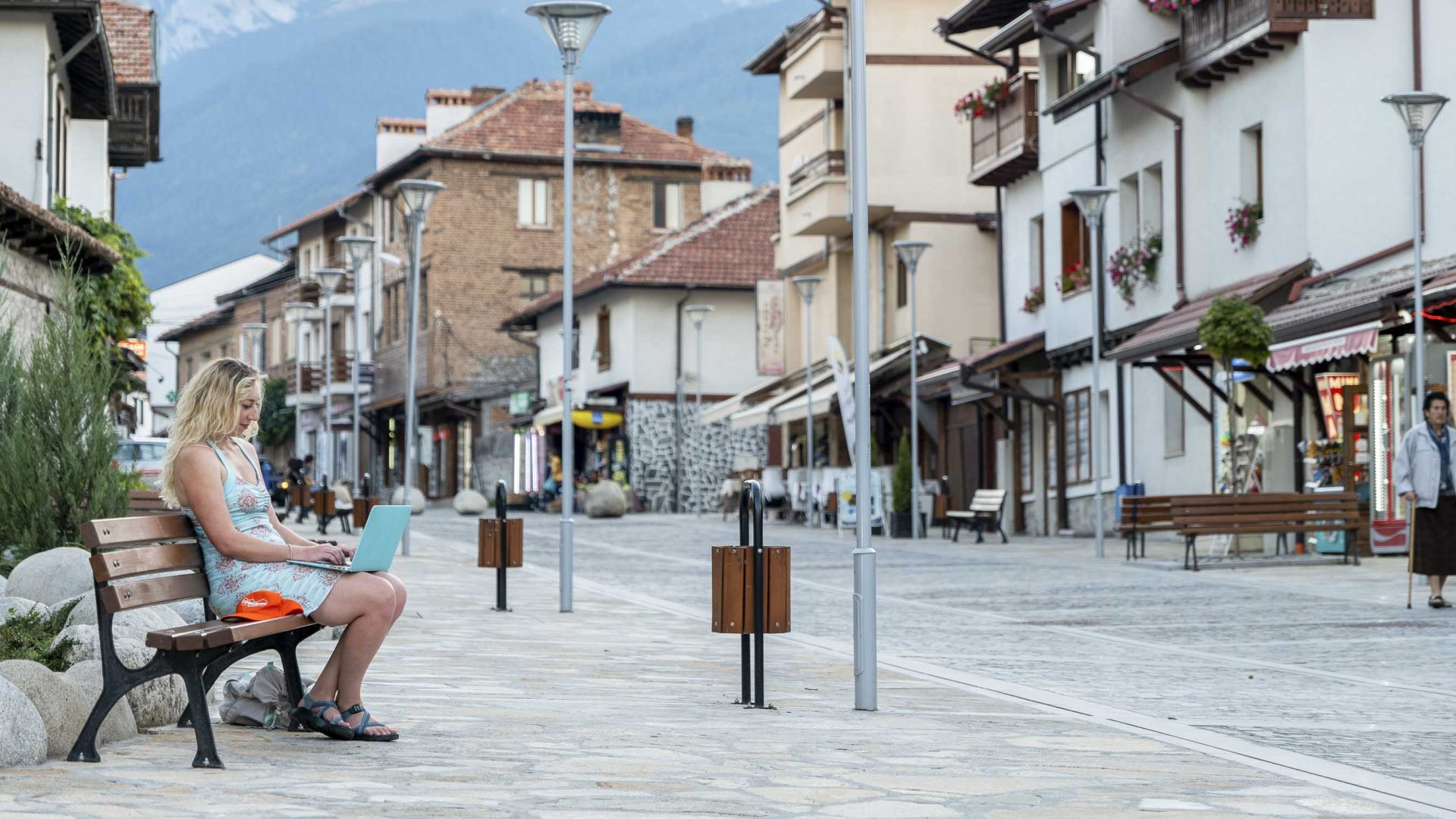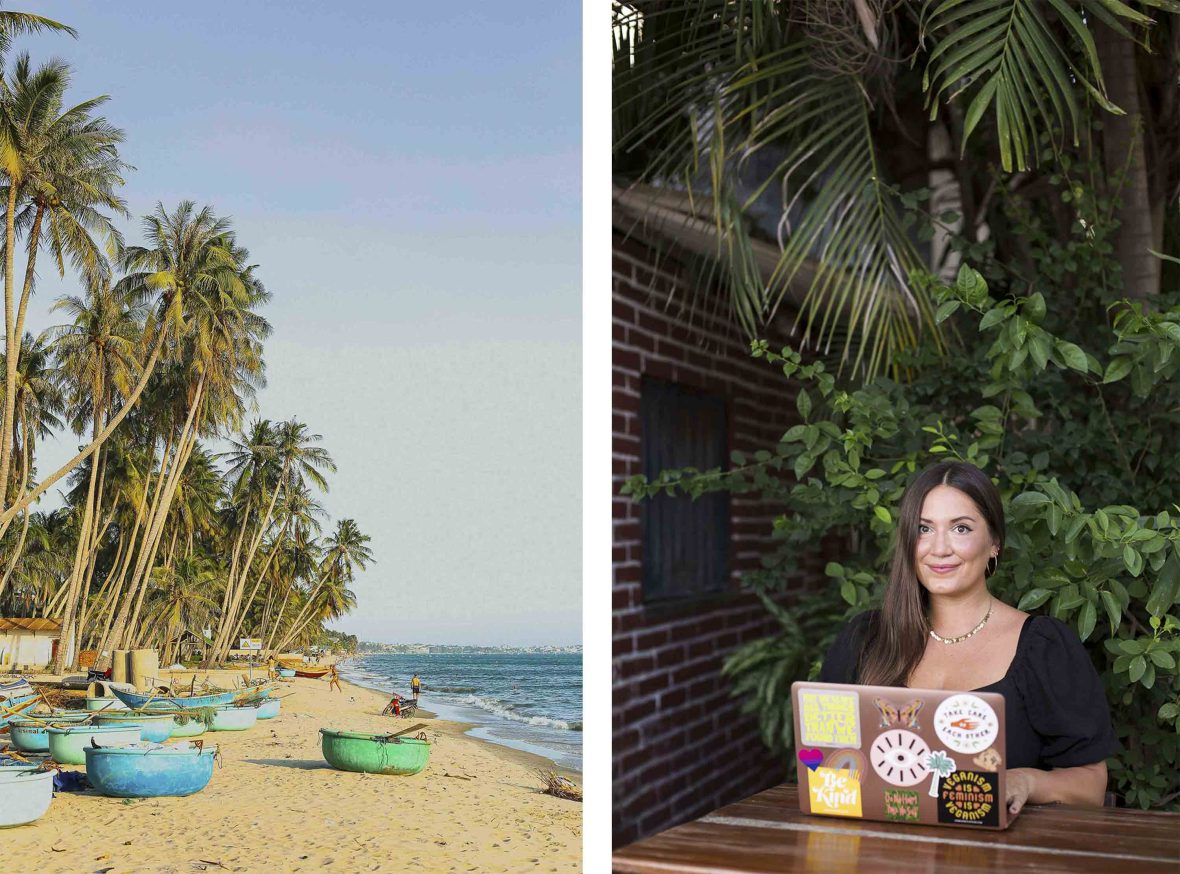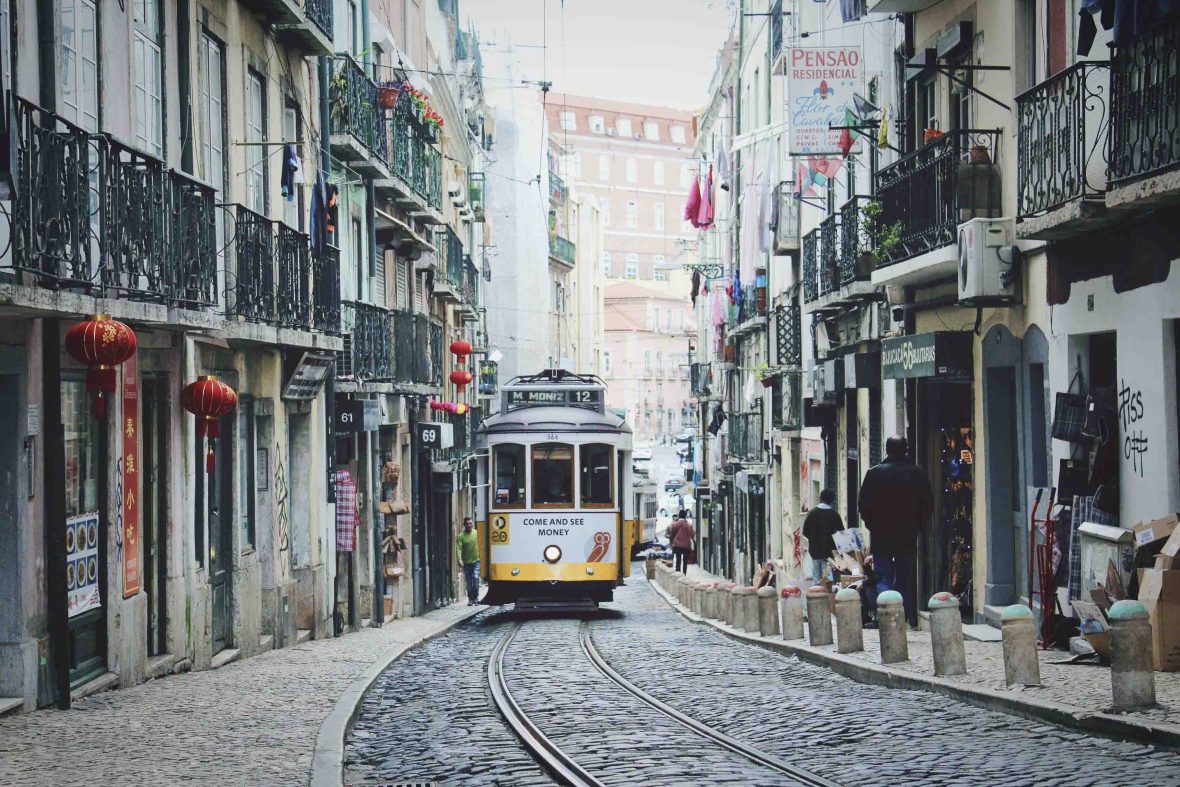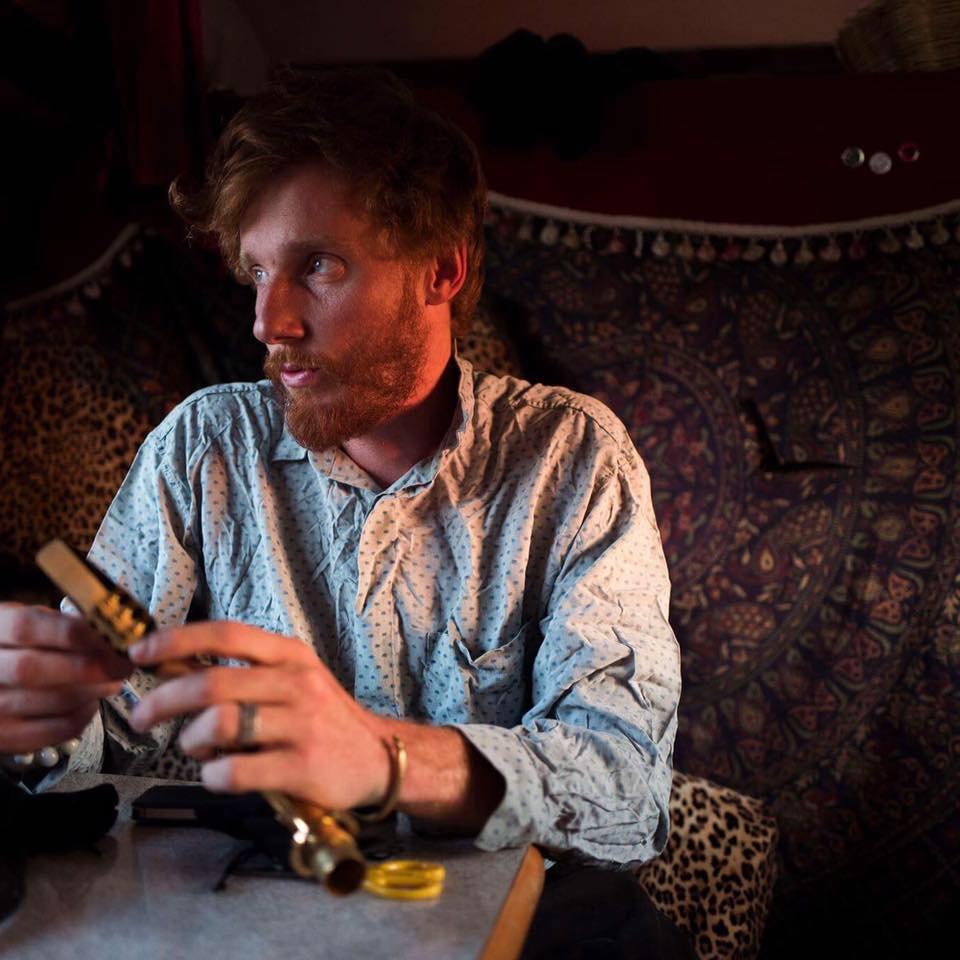
Where travel companies and tourism boards used to sell holidays based on the positives of a destination, many are now switching to focusing on the negatives of home. It’s working. But at what cost? Georgina Lawton investigates.


Where travel companies and tourism boards used to sell holidays based on the positives of a destination, many are now switching to focusing on the negatives of home. It’s working. But at what cost? Georgina Lawton investigates.
For many travel companies, selling travel in a post-pandemic world and in the midst of a global energy (and cost of living) crisis is a challenge. Operators eager to recoup losses are adopting bold marketing techniques to draw people to sunnier climes.
Where travel was once aspirational and steeped in the magic of what lay beyond, it seems the language is now rooted in the idea of absconding from the doom and gloom of home, with campaigns that play on that idea that anywhere but here is preferable.
Low-cost airline easyJet was one of the first travel providers to play on the UK’s cost of living crisis with their ‘Escape the UK’ campaign at the end of 2022. They calculated the average cost for someone to pay for rent, travel, food and bills over 28 days in Britain and offered an all-inclusive holiday to Egypt with transfers and flights to beat that price. The trip came in at GBP£650pp (USD$950) or £12 ($15) per night, sold out in 48 hours and became a viral online hit. A similar self-catered trip to Tunisia was later launched for £750pp ($950).
In late 2022, Greece rolled out a EUR€20m ($22m) advertising campaign for adults and retirees: ‘Wanna feel 20 again?’ asked giant billboards in London that featured an older couple on a yacht. But it wasn’t just a wistful nod to lost youth. Rather, the national tourism board was also referring to temperature with the tagline of the billboard reading: ‘With warm winter temperatures up to 20°C, Greece is the place to be.’

Like easyJet, Greece’s campaign was also inspired by the current energy and cost of living crisis, enticing northern Europeans with a warm winter climate and the spate of affordable hotels found on Greek shores.
Countries like Spain and Portugal also used the winter months to announce attractive new travel schemes. Portugal, which boomed off the back of the passive income D7 visa, introduced a new digital nomad visa for non-EU citizens in November 2022, while in the same month, Spain also adopted a similar program for remote workers.
Travel marketing no longer plays into the benefits of the destination you’re going to: The greater pull is leaving a dire home nation behind.
- Tom Winterton
Cailey Rizzo, a travel writer and essayist from the United States who has also lived in the UK, says the timing of such campaigns is not accidental. “The great irony of Brexit is that closed borders have led to mass migration out of the country while raising the cost of living for those who stayed. If you’re a remote worker, why not make a move?” she says. “Travel is also no longer a luxury for many people, so marketers pitch it as something you need for your mental health, your economic health, your wellbeing.”
Market research company eMarkerter reports that during the pandemic, no other industry has declined as fast or spent as little on advertising than travel. While the industry spent $6 billion USD globally on digital ads in 2019, in 2020 it plummeted to almost half that.
Tom Winterton, director at comms agency Manifest, has noticed a shift in tone around ads selling not just holidays but many products, believing it speaks to a particular brand of British sardonicism.
“There’s dark humor there—it resonates strongly with many of us right now,” he says. This has been mirrored in campaigns for dating apps encouraging us to stay logged in to find someone to split the electricity bill with, to French vegan bacon company, La Vie, whose controversial tagline for a recent ad was: ‘Sure, our parents got the property boom, but we’ve got vegan bacon that tastes like bacon.’
Winterton notes that travel marketing no longer plays into the benefits of the destination you’re going to: The greater pull is leaving a dire home nation behind. “What we’re seeing more and more today are brands simply holding up a mirror: ‘This is your life now’,” he says. “Advertisers are focusing on the negatives of the domestic market (it’s cold, it’s expensive) instead of talking about nice beaches and weather abroad. It’s a straight-talking and ultra-relatable approach that makes people feel seen and not just ‘marketed at.’”
But to me, there’s also an irritating, jaded sense of knowing in the language of these ads, highlighting our collective plight. Yes, there’s an attempt at chummy camaraderie but, in many cases, it comes off as a shameless, nihilistic consumerist response to the economic crisis: ‘We’re all screwed so might as well book that flight!’
In the UK and America, these ads also draw on colonial fantasies by capitalizing on the misery of those in nations with formerly powerful passports and encouraging them to flee abroad where their spending power is higher to feel powerful again. And of course, that’s often at the expense of the people there. In recent years, discourse around gentrification and displacing locals have become hot-button topics in digital nomad hotspots such as Lisbon, Mexico City, Bali, and Medellin.
“We aren’t talking about the country’s poorest people packing up; we’re talking about fairly wealthy, fairly educated people seeking either more material prosperity or a less stressful existence.”
- Cailey Rizzo, travel writer
Emily Atkinson, Tiktok content creator and founder of social media agency The Nurture Studios, moved to Portugal in 2023 after falling in love with “the slower pace of life, cuisine, proximity to the ocean and affordability.” She’s aware of the growing backlash against remote workers from some who argue that any money being poured into the Portuguese economy is being mitigated by the tax breaks offered.
“I’m aware that being a nomad here has become a bit of a contentious subject,” Atkinson says. “It’s understandable for the locals. I hope to integrate myself into the community by learning the language, making local friends and choosing to live more like the Portuguese people. I have chosen to live outside of the city so as not to drive up rent prices.”

The idea of being an energy nomad—someone who temporarily travels abroad to escape heating bills at home—is similar to that of being a digital nomad. Both groups often work remotely and apply for short-term visas. Lola Méndez, a freelance travel writer from the States isn’t familiar with the term but notes that she might be one, as she’s avoided winter since leaving New York City back in 2015. “I’ve been doing my best to avoid the cold since I left the US,” she notes. “I lived in Spain, then Asia where I traveled around India, Thailand and Vietnam. In the pandemic, I got (safely) stuck in Uruguay.”
Mendez works remotely and is all too aware of the stereotypes. “Digital nomads get a bad rep for good reason. Many buy property in up-and-coming destinations and price out locals by renting out accommodation on Airbnb for exorbitant prices.” Like Atkinson, Méndez is also cognisant of the side effects of short-term renting in popular areas. “I mitigate my impact by only renting from local landlords and supporting local businesses to ensure my foreign spending power goes into local hands,” she says.
Like Atkinson and Mendez, I too left my home nation pre-pandemic for a better quality of life abroad, swapping London for Lisbon in 2020. I’d like to think of myself as non-nomadic and therefore contributing to the Portuguese economy and also learning the language. As unfettered capitalism continues globally, along with open border policies that greatly benefit people with strong passports, moving abroad to essentially save money will only continue.
And while pre-pandemic nomads were once backpack-carrying freelancers and designers, making around $1,000 a month via part-time work, the face of the modern nomad has somewhat changed now, with so much of the corporate sector also enjoying remote work benefits.

Rizzo notes that the narrative around energy nomads obscures them from many responsibilities in their new homes of choice. “It’s convenient to say citizens are being priced out of their country’s own wealth as they can’t afford heating, but the average digital nomad now makes an annual salary of over $100,000 USD,” she explains.
It may not be quite that many people earning quite that much, and exact earnings are hard to come by, but Rizzo perhaps isn’t far off. According to research published in 2023, 36 percent of surveyed digital nomads worldwide stated an annual income of $100,000 to $250,000 USD. Another 2021 survey found that almost half earned more than in a more traditional taxed-as-you-go job.
“Low cost of living is becoming more enticing than proximity to wealth because that physical proximity is less relevant in a digital age,” continues Rizzo. “We aren’t talking about the country’s poorest people packing up; we’re talking about fairly wealthy, fairly educated people seeking either more material prosperity or a less stressful existence.”
Perhaps that’s something to remember next time we come across another pithy travel ad, perfectly confected to make us feel as if we’re caught in the crossfire between the cost of heating and rapidly rising rents.
Yes, we might be on the brink of civilizational collapse at home, but increasingly, so is everywhere else.
***
Adventure.com strives to be a low-emissions publication, and we are working to reduce our carbon emissions where possible. Emissions generated by the movements of our staff and contributors are carbon offset through our parent company, Intrepid. You can visit our sustainability page and read our Contributor Impact Guidelines for more information. While we take our commitment to people and planet seriously, we acknowledge that we still have plenty of work to do, and we welcome all feedback and suggestions from our readers. You can contact us anytime at hello@adventure.com. Please allow up to one week for a response.

Georgina Lawton is a fan of solo exploring, adventure travel and is the author of the travel book, 'Black Girls Take World' and memoir 'Raceless', both released in 2021. She's traveled the world alone for more than a year; some of her favorite countries include Nicaragua for unspoilt hikes and beaches, Indonesia for the food, and Brazil for just about everything. Originally from London, she now lives in Lisbon, where she is working on her first novel and learning Portuguese in between writing and making travel content on TikTok.








Can't find what you're looking for? Try using these tags: